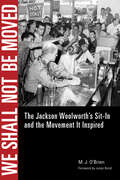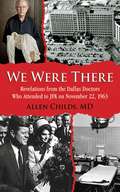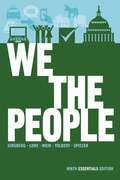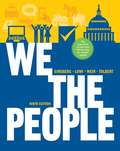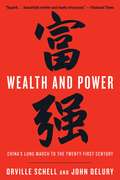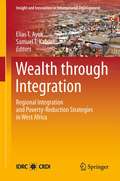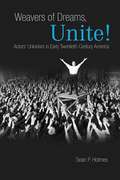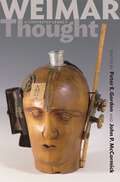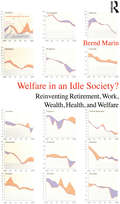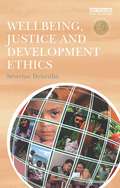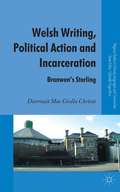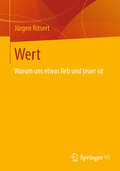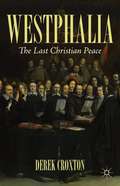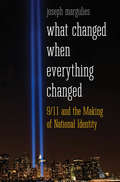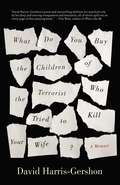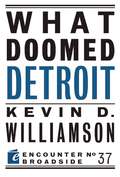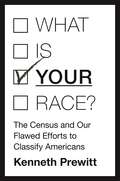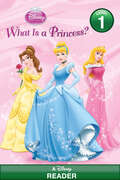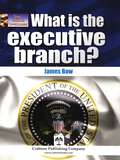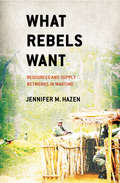- Table View
- List View
We Shall Not Be Moved: The Jackson Woolworth's Sit-In and the Movement It Inspired
by M. J. O'BrienWinner of the 2014 Lillian Smith Book Award Once in a great while, a photograph captures the essence of an era: Three people—one black and two white—demonstrate for equality at a lunch counter while a horde of cigarette-smoking hotshots pour catsup, sugar, and other condiments on the protesters' heads and down their backs. The image strikes a chord for all who lived through those turbulent times of a changing America. The photograph, which plays a central role in the book's perspectives from frontline participants, caught a moment when the raw virulence of racism crashed against the defiance of visionaries. It now shows up regularly in books, magazines, videos, and museums that endeavor to explain America's largely nonviolent civil rights battles of the late 1950s and early 1960s. Yet for all of the photograph's celebrated qualities, the people in it and the events they inspired have only been sketched in civil rights histories. It is not well known, for instance, that it was this event that sparked to life the civil rights movement in Jackson, Mississippi, in 1963. Sadly, this same sit-in and the protest events it inspired led to the assassination of Medgar Evers, who was leading the charge in Jackson for the NAACP. We Shall Not Be Moved puts the Jackson Woolworth's sit-in into historical context. Part multifaceted biography, part well-researched history, this gripping narrative explores the hearts and minds of those participating in this harrowing sit-in experience. It was a demonstration without precedent in Mississippi—one that set the stage for much that would follow in the changing dynamics of the state's racial politics, particularly in its capital city.
We Were There: Revelations from the Dallas Doctors Who Attended to JFK on November 22, 1963
by Allen ChildsThere are few days in American history so immortalized in public memory as November 22, 1963, the date of President John F. Kennedy's assassination. Adding to the wealth of information about this tragic day is We Were There, a truly unique collection of firsthand accounts from the doctors and staff on scene at the hospital where JFK was immediately taken after he was shot.With the help of his former fellow staff members at Parkland Memorial Hospital, Dr. Allen Childs recreates the horrific day, from the president's arrival in Dallas to the public announcement of his death. Childs presents a multifaceted and sentimental reflection on the day and its aftermath.In addition to detailing the sequence of events that transpired around JFK's death, We Were There offers memories of the First Lady, insights on conspiracy theories revolving around the president's assassination, and recollections of the death of Lee Harvey Oswald, who succumbed two days later in the same hospital where his own victim was pronounced dead.A compelling, emotional read, We Were There pays tribute to a critical event in American modern history--and to a man whose death was mourned like no other.
We the People: An Introduction to American Politics
by Benjamin Ginsberg Margaret Weir Caroline J. Tolbert Theodore J. Lowi Robert J. SpitzerWe the People is the best text for showing students that politics is relevant to their lives and that political participation matters--especially in the digital age. Based on the full-length text, this low-priced, very brief text offers authoritative coverage of the core topics in American politics. New coauthor Caroline Tolbert brings expertise in political behavior to deep revisions of key chapters, and new Digital Citizens boxes highlight the role of new media in politics.
We the People: An Introduction to American Politics, Ninth Edition
by Benjamin Ginsberg Margaret Weir Caroline J. Tolbert Theodore J. LowiThis new Ninth Edition shows: (i) how students are connected to government; (ii) how digital media are changing or not changing the way Americans experience politics; and (iii) why students should think critically about government and politics.
Wealth and Power: China's Long March to the Twenty-first Century
by Orville Schell John DeluryThrough a series of lively and absorbing portraits of iconic modern Chinese leaders and thinkers, two of today's foremost specialists on China provide a panoramic narrative of this country's rise to preeminence that is at once analytical and personal. How did a nation, after a long and painful period of dynastic decline, intellectual upheaval, foreign occupation, civil war, and revolution, manage to burst forth onto the world stage with such an impressive run of hyperdevelopment and wealth creation--culminating in the extraordinary dynamism of China today? Wealth and Power answers this question by examining the lives of eleven influential officials, writers, activists, and leaders whose contributions helped create modern China. This fascinating survey begins in the lead-up to the first Opium War with Wei Yuan, the nineteenth-century scholar and reformer who was one of the first to urge China to borrow ideas from the West. It concludes in our time with human-rights advocate and Nobel Peace Prize laureate Liu Xiaobo, an outspoken opponent of single-party rule. Along the way, we meet such titans of Chinese history as the Empress Dowager Cixi, public intellectuals Feng Guifen, Liang Qichao, and Chen Duxiu, Nationalist stalwarts Sun Yat-sen and Chiang Kai-shek, and Communist Party leaders Mao Zedong, Deng Xiaoping, and Zhu Rongji. The common goal that unites all of these disparate figures is their determined pursuit of fuqiang, "wealth and power." This abiding quest for a restoration of national greatness in the face of a "century of humiliation" at the hands of the Great Powers came to define the modern Chinese character. It's what drove both Mao and Deng to embark on root-and-branch transformations of Chinese society, first by means of Marxism-Leninism, then by authoritarian capitalism. And this determined quest remains the key to understanding many of China's actions today. By unwrapping the intellectual antecedents of today's resurgent China, Orville Schell and John Delury supply much-needed insight into the country's tortured progression from nineteenth-century decline to twenty-first-century boom. By looking backward into the past to understand forces at work for hundreds of years, they help us understand China today and the future that this singular country is helping shape for all of us. Advance praise for Wealth and Power "Wealth and Power offers everything readers might expect from its two eminent authors. The hardest challenge in writing about China, or finding things to read about it, is perceiving significant patterns while remaining aware of the chaos and contradictions. Orville Schell and John Delury meet that challenge in exemplary form."--James Fallows, national correspondent, The Atlantic "A brilliantly original and essential book . . . It is required reading for anyone seeking to understand China's motives and the future of global competition, and is, quite simply, a pleasure to read. Vivid, literate, and brimming with insights, Wealth and Power deserves to become a classic."--Evan Osnos, China correspondent, The New Yorker "In Wealth and Power, Schell and Delury present us with the historical background to understand the driving mechanism that lies at the center of China today. By no longer presenting China's past two centuries as a record of recurrent failures, they give us a portrait of a nation in the making, and of leaders with the skills and determination to redirect China's energies on a global scale."--Jonathan D. Spence, author of The Search for Modern China
Wealth through Integration
by Elias T. Ayuk Samuel T. KaboréCould regional integration be a first step toward joining the global market? In a context where liberalizing trade has not produced the expected gains in developing countries and growth in global trade has not led to the expected economic growth, an alternative solution has emerged. This new paradigm suggests that trade liberalization should be accompanied by public investment. However, by its very nature, trade liberalization leads to a reduction in revenues from duties and taxes, which means that the available resources for public investments will also be reduced. There are now solid arguments for encouraging the less-developed countries to first emphasize regional integration before trying to access the global market. This book explores the issues linked to regional integration in West Africa and presents empirical data about the experiences in = West African Economic and Monetary Union (WAEMU) countries to converge their economies. It also examines how these efforts, which make a major contribution to regional integration, influence poverty reduction in the economic and monetary community. It will be of interest to researchers working in this area. Elias T. Ayuk is Director of the United Nations University Institute for Natural Resources in Africa in Accra, Ghana, and was formerly a senior program specialist at the International Development Research Centre. Samuel T. Kaboré is a researcher/lecturer at the Faculty of Economics and Management at the University of Ouagadougou II, Burkina Faso. Canada's International Development Research Centre (IDRC) supports research in developing countries to promote growth and development. IDRC also encourages sharing this knowledge with policymakers, other researchers, and communities around the world. The result is innovative, lasting local solutions that aim to bring choice and change to those who need it most. Elias T. Ayuk is Director of the United Nations University Institute for Natural Resources in Africa in Accra, Ghana, and was formerly a senior program specialist at the International Development Research Centre. Samuel T. Kaboré is a researcher/lecturer at the Faculty of Economics and Management at the University of Ouagadougou II, Burkina Faso. Canada's International Development Research Centre (IDRC) supports research in developing countries to promote growth and development. IDRC also encourages sharing this knowledge with policymakers, other researchers, and communities around the world. The result is innovative, lasting local solutions that aim to bring choice and change to those who need it most.
Weavers of Dreams, Unite!: Actors' Unionism in Early Twentieth-Century America
by Sean P. HolmesPublished to coincide with the centenary of the founding of the Actors' Equity Association in 1913, Weavers of Dreams, Unite! explores the history of actors' unionism in the United States from the late nineteenth century to the onset of the Great Depression. Drawing upon hitherto untapped archival resources in New York and Los Angeles, Sean P. Holmes documents how American stage actors used trade unionism to construct for themselves an occupational identity that foregrounded both their artistry and their respectability. In the process, he paints a vivid picture of life on the theatrical shop floor in an era in which economic, cultural, and technological changes were transforming the nature of acting as work. The engaging study offers important insights into the nature of cultural production in the early twentieth century, the role of class in the construction of cultural hierarchy, and the special problems that unionization posed for workers in the commercial entertainment industry.
Weimar Thought: A Contested Legacy
by Peter E. Gordon and John P. McCormickA comprehensive look at the intellectual and cultural innovations of the Weimar periodDuring its short lifespan, the Weimar Republic (1918–33) witnessed an unprecedented flowering of achievements in many areas, including psychology, political theory, physics, philosophy, literary and cultural criticism, and the arts. Leading intellectuals, scholars, and critics—such as Hannah Arendt, Walter Benjamin, Ernst Bloch, Bertolt Brecht, and Martin Heidegger—emerged during this time to become the foremost thinkers of the twentieth century. Even today, the Weimar era remains a vital resource for new intellectual movements. In this incomparable collection, Weimar Thought presents both the specialist and the general reader a comprehensive guide and unified portrait of the most important innovators, themes, and trends of this fascinating period.The book is divided into four thematic sections: law, politics, and society; philosophy, theology, and science; aesthetics, literature, and film; and general cultural and social themes of the Weimar period. The volume brings together established and emerging scholars from a remarkable array of fields, and each individual essay serves as an overview for a particular discipline while offering distinctive critical engagement with relevant problems and debates.Whether used as an introductory companion or advanced scholarly resource, Weimar Thought provides insight into the rich developments behind the intellectual foundations of modernity.
Weiwei-isms (ISMs #1)
by Ai WeiweiThe quotable Ai WeiweiThis collection of quotes demonstrates the elegant simplicity of Ai Weiwei's thoughts on key aspects of his art, politics, and life. A master at communicating powerful ideas in astonishingly few words, Ai Weiwei is known for his innovative use of social media to disseminate his views. The short quotations presented here have been carefully selected from articles, tweets, and interviews given by this acclaimed Chinese artist and activist. The book is organized into six categories: freedom of expression; art and activism; government, power, and moral choices; the digital world; history, the historical moment, and the future; and personal reflections.Together, these quotes span some of the most revealing moments of Ai Weiwei's eventful career—from his risky investigation into student deaths in the 2008 Sichuan earthquake to his arbitrary arrest in 2011—providing a window into the mind of one of the world's most electrifying and courageous contemporary artists.Select Quotes from the Book:On Freedom of Expression"Say what you need to say plainly, and then take responsibility for it.""A small act is worth a million thoughts.""Liberty is about our rights to question everything."On Art and Activism"Everything is art. Everything is politics.""The art always wins. Anything can happen to me, but the art will stay.""Life is art. Art is life. I never separate it. I don't feel that much anger. I equally have a lot of joy."On Government, Power, and Making Moral Choice"Once you've tasted freedom, it stays in your heart and no one can take it. Then, you can be more powerful than a whole country.""I feel powerless all the time, but I regain my energy by making a very small difference that won't cost me much.""Tips on surviving the regime: Respect yourself and speak for others. Do one small thing every day to prove the existence of justice."On the Digital World"Only with the Internet can a peasant I have never met hear my voice and I can learn what's on his mind. A fairy tale has come true.""The Internet is uncontrollable. And if the Internet is uncontrollable, freedom will win. It's as simple as that.""The Internet is the best thing that could have happened to China."On History, the Historical Moment, and the Future"If a nation cannot face its past, it has no future.""We need to get out of the old language.""The world is a sphere, there is no East or West."Personal Reflection"I've never planned any part of my career—except being an artist. And I was pushed into that corner because I thought being an artist was the only way to have a little freedom.""Anyone fighting for freedom does not want to totally lose their freedom.""Expressing oneself is like a drug. I'm so addicted to it."
Welfare and Party Politics in Latin America
by Jennifer PribbleSystems of social protection can provide crucial assistance to the poorest and most vulnerable groups in society, but not all systems are created equally. In Latin America, social policies have historically exhibited large gaps in coverage and high levels of inequality in benefit size. Since the late 1990s, countries in this region have begun to grapple with these challenges, enacting a series of reforms to healthcare, social assistance, and education policy. While some of these initiatives have moved in a universal direction, others have maintained existing segmentation or moved in a regressive direction. Welfare and Party Politics in Latin America explores this variation in Argentina, Chile, Uruguay, and Venezuela, finding that the design of previous policies, the intensity of electoral competition, and the character of political parties all influence the nature of contemporary social policy reform in Latin America.
Welfare in an Idle Society?: Reinventing Retirement, Work, Wealth, Health and Welfare
by Bernd MarinThe modern welfare state is indeed one of the greatest achievements of the post-war 20th century. With its key aims of eradicating the five giant social ills of Want, Ignorance, Disease, Squalor and Idleness, it aimed to providing a minimum standard of living, with all people of working age paying a weekly contribution; in return, benefits would be paid to anyone who was sick, unemployed, retired or widowed. The modern welfare state, therefore, is about maintaining a delicate equilibrium between dependent social groups on the one hand and the active working classes on the other. In the case of old-age security, this balance is being achieved (or not) by the so-called Generation Contract. This social pact is more of an implicit, unwritten and unspecified social contract. This ground-breaking book demonstrates how countries are addressing population-ageing challenges in depth, using the case study of Austria to gain the required complexity and differentiation in a comparative European framework of empirical evidence. This is a broad social science study in political economy and sociology, not an economic analysis. Though focusing on pensions, it centres on the (im)balance between work and non-work, issues of health, work ability, employability, and benefit receipt from old-age security to disability allowance. It will be required reading for all sociologists and social policy experts and academics working within this area.
Wellbeing, Justice and Development Ethics
by Severine DeneulinThe question of the meaning of progress and development is back on the political agenda. How to frame this discontent and search for new alternatives when either Marxism or liberalism no longer provides a satisfactory framework? This book introduces in an accessible way the capability approach, first articulated by Amartya Sen in the early 1980s. Written for an international audience, but rooted in the Latin American reality - a region with a history of movements for social justice - the book argues that the capability approach provides to date, the most encompassing and compelling ethical framework with which to construct action for improving people’s wellbeing and reducing injustices in the world. This book outlines in a clear and concrete way what the capability approach is and its significance for the social sciences and policy. It describes the distinctiveness of the approach as an ethical framework for action and aims to stimulate critical reflection on current economic and social practices as well as providing a language with which to modify them within human wellbeing concerns. Comprehensive, practical and nuanced in its treatment of the capability approach, this highly original volume gives students, researchers and professionals in the field of development an innovative framing of the capability approach as a 'language' for action and provides specific examples of how it has made a difference.
Welsh Writing, Political Action and Incarceration: Branwen’s Starling (Palgrave Studies in Minority Languages and Communities)
by Diarmait Mac Giolla ChríostWelsh Writing, Political Action and Incarceration examines the prison literature of certain iconic Welsh authors whose political lives and creative writings are linked to ideas about Wales and the Welsh language, the nature of political activism, and the function of incarceration.
Wert: Warum uns etwas lieb und teuer ist
by Jürgen Ritsert"Wert" ist ein Grundbegriff, der im Alltag sowie in einer ganzen Reihe von Fachwissenschaften meist mit aller Selbstverständlichkeit benutzt wird: in der Moralphilosophie, der Ökonomie, der Politologie, der Soziologie, der Ethnologie und der Kulturanthropologie. Doch er ist und bleibt - wie schon Max Weber festgestellt hat - ein "Schmerzenskind" der Kulturwissenschaften. Dieser Essay informiert über einige Kontroversen über den Wertbegriff sowie einige begehbare Pfade in der Sumpflandschaft des Wertdiskurses. Der Text steht in einem inneren Zusammenhang mit den beiden Essays des Verfassers über den Problembegriff und vier Grundbegriffe der politischen Philosophie (2012).
West Germany and the Global Sixties
by Timothy Scott BrownThe anti-authoritarian revolt of the 1960s and 1970s was a watershed in the history of the Federal Republic of Germany. The rebellion of the so-called '68ers' - against cultural conformity and the ideological imperatives of the Cold War; against the American war in Vietnam; in favor of a more open accounting for the crimes of the Nazi era - helped to inspire a dialogue on democratization with profound effects on German society. Timothy Brown examines the unique synthesis of globalizing influences on West Germany to reveal how the presence of Third World students, imported pop culture from America and England and the influence of new political doctrines worldwide all helped to precipitate the revolt. The book explains how the events in West Germany grew out of a new interplay of radical politics and popular culture, even as they drew on principles of direct-democracy, self-organization and self-determination, all still highly relevant in the present day.
Western Union and the Creation of the American Corporate Order, 1845-1893
by Joshua D. WolffThis work chronicles the rise of Western Union Telegraph from its origins in the helter-skelter ferment of antebellum capitalism to its apogee as the first corporation to monopolize an industry on a national scale. The battles that raged over Western Union's monopoly on nineteenth-century American telecommunications - in Congress, in courts, and in the press - illuminate the fierce tensions over the rising power of corporations after the Civil War and the reshaping of American political economy. The telegraph debate reveals that what we understand as the normative relationship between private capital and public interest is the product of a historical process that was neither inevitable nor uncontested. Western Union's monopoly was not the result of market logic or a managerial revolution, but the conscious creation of entrepreneurs protecting their investments. In the process, these entrepreneurs elevated economic liberalism above traditional republican principles of public interest and helped create a new corporate order.
Westphalia
by Derek CroxtonThis sweeping, exhaustively researched history is the first comprehensive account of the Peace of Westphalia in English. Bringing together the latest scholarship with an engaging narrative, it retraces the historical origins of the Peace, exploring its political-intellectual underpinnings and placing it in a broad global and chronological context.
What Are Rights And Responsibilities? (Civics Q&A Series)
by Leslie HarperReaders will learn about a citizens rights and responsibilities through engaging, accessible text. After reading, they will be able define the difference between a right and a responsibility, gives examples of rights people have stood up and fought for, and of responsibilities that are part of good citizenship. Readers will gain a new understanding of the importance of the relationship between citizenship and society.
What Changed When Everything Changed
by Joseph MarguliesBeautifully written and carefully reasoned, this bold and provocative work upends the conventional wisdom about the American reaction to crisis. Margulies demonstrates that for key elements of the post-9/11 landscape--especially support for counterterror policies like torture and hostility to Islam--American identity is not only darker than it was before September 11, 2001, but substantially more repressive than it was immediately after the attacks. These repressive attitudes, Margulies shows us, have taken hold even as the terrorist threat has diminished significantly. Contrary to what is widely imagined, at the moment of greatest perceived threat, when the fear of another attack "hung over the country like a shroud," favorable attitudes toward Muslims and Islam were at record highs, and the suggestion that America should torture was denounced in the public square. Only much later did it become socially acceptable to favor "enhanced interrogation" and exhibit clear anti-Muslim prejudice. Margulies accounts for this unexpected turn and explains what it means to the nation's identity as it moves beyond 9/11. We express our values in the same language, but that language can hide profound differences and radical changes in what we actually believe. "National identity," he writes, "is not fixed, it is made."
What Do You Buy the Children of the Terrorist Who Tried to Kill Your Wife? A Memoir: A Memoir
by David Harris-GershonDavid Harris-Gershon and his wife, Jamie, moved to Jerusalem full of hope. Then, in the midst of a historic cease-fire between Israel and the Palestinians, a bomb shrieked through Hebrew University’s cafeteria. Jamie was hurled across the room, her body burned and sliced with shrapnel; the friends sitting next to her were instantly killed. David was desperate for answers—why now? why here? why my wife? But when a doctor handed him some shrapnel removed from Jamie’s body, he refused to accept that this bit of metal made him “one of us”—another traumatized victim who would never be able to move on. Instead, he dug into Israeli government records to uncover what triggered the attack, then returned to East Jerusalem to meet the terrorist and his family. <P><P> Part memoir, part political thriller, part exposé of the conduct of the peace process, this fearless debut confronts the personal costs of the Middle East conflict—and reveals the human capacity for recovery and reconciliation, no matter the circumstance.
What Doomed Detroit
by Kevin D. WilliamsonMany cities have struggled with the decline of key industries, from Philadelphia's shipyards to New York's textile industry, but Detroit-which is now in bankruptcy-is both a victim of the decline of the Michigan automobile industry and a cause of it. A city with a history of civil disorder-it is the only American city occupied on three separate occasions by federal troops-its poisonous blend of race-based politics and union domination has left it impoverished and diminished. Once the fourth-largest city in the country, it is today smaller than Fort Worth. Once the nation's most prosperous city, it is today the poorest. Even in its reduced state, it is the largest U.S. city ever to file for bankruptcy-and yet its city payroll maintains twice as many government employees per resident as does San Jose. More terrifying is the fact that the imbalance between public-sector consumption and private-sector production that helped make Detroit what it is today is by no means limited to the Motor City-in fact, there are four large U.S. cities that are in arguably worse shape. Detroit is not just a case study, but a portent.
What Is "Your" Race?: The Census and Our Flawed Efforts to Classify Americans
by Kenneth PrewittA historical overview of the census race question—and a bold proposal for eliminating itAmerica is preoccupied with race statistics—perhaps more than any other nation. Do these statistics illuminate social reality and produce coherent social policy, or cloud that reality and confuse social policy? Does America still have a color line? Who is on which side? Does it have a different "race" line—the nativity line—separating the native born from the foreign born? You might expect to answer these and similar questions with the government's "statistical races." Not likely, observes Kenneth Prewitt, who shows why the way we count by race is flawed.Prewitt calls for radical change. The nation needs to move beyond a race classification whose origins are in discredited eighteenth-century race-is-biology science, a classification that once defined Japanese and Chinese as separate races, but now combines them as a statistical "Asian race." One that once tried to divide the "white race" into "good whites" and "bad whites," and that today cannot distinguish descendants of Africans brought in chains four hundred years ago from children of Ethiopian parents who eagerly immigrated twenty years ago. Contrary to common sense, the classification says there are only two ethnicities in America—Hispanics and non-Hispanics. But if the old classification is cast aside, is there something better?What Is Your Race? clearly lays out the steps that can take the nation from where it is to where it needs to be. It's not an overnight task—particularly the explosive step of dropping today's race question from the census—but Prewitt argues persuasively that radical change is technically and politically achievable, and morally necessary.
What Is a Princess? (Disney Princess)
by Disney PressWHAT IS A princess? Is she someone who is smart and brave, kind and caring—or is she someone much, much more? Cinderella, Ariel, Belle, and all the Disney Princesses answer that question in this Step 1 book that is the first in the Step into Readling line to feature multiple Disney Princesses in one book!
What Is the Executive Branch (Your Guide To Government Ser.)
by James BowThe executive branch of the United States government is responsible for putting laws into action. This book carefully explains the workings of the executive branch, from its most visible figure, the President, through to the vice president, cabinet, and executive departments and agencies. Key roles such as the Secretary of State, Secretary of Defense, and Attorney General are profiled. A comparison to other executive powers in state and local governments, as well as other countries, is also included. Teacher's guide available.
What Rebels Want: Resources and Supply Networks in Wartime
by Jennifer M. HazenHow easy is it for rebel groups to purchase weapons and ammunition in the middle of a war? How quickly can commodities such as diamonds and cocoa be converted into cash to buy war supplies? And why does answering these questions matter for understanding civil wars? In What Rebels Want, Jennifer M. Hazen challenges the commonly held view that rebel groups can get what they want, when they want it, and when they most need it. Hazen's assessments of resource availability in the wars in Sierra Leone, Liberia, and Côte d'Ivoire lead to a better understanding of rebel group capacity and options for war and war termination.Resources entail more than just cash; they include various other economic, military, and political goods, including natural resources, arms and ammunition, safe haven, and diplomatic support. However, rebel groups rarely enjoy continuous access to resources throughout a conflict. Understanding fluctuations in fortune is central to identifying the options available to rebel groups and the reasons why a rebel group chooses to pursue war or peace. The stronger the group's capacity, the more options it possesses with respect to fighting a war. The chances for successful negotiations and the implementation of a peace agreement increase as the options of the rebel group narrow. Sustainable negotiated solutions are most likely, Hazen finds, when a rebel group views negotiations not as one of the solutions for obtaining what it wants, but as the only solution.
